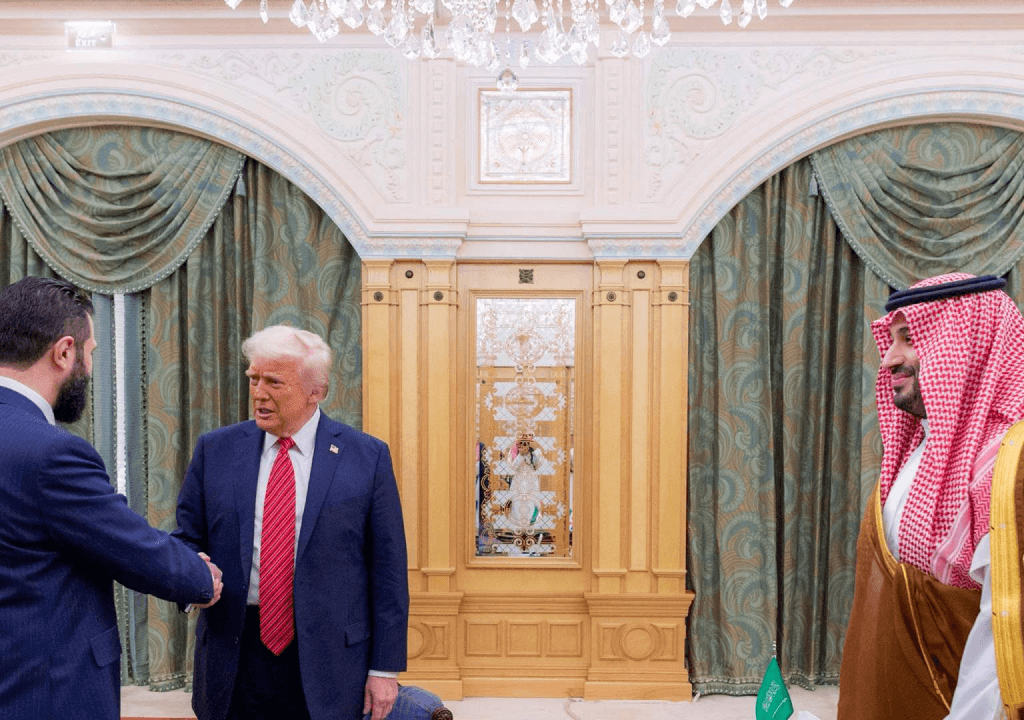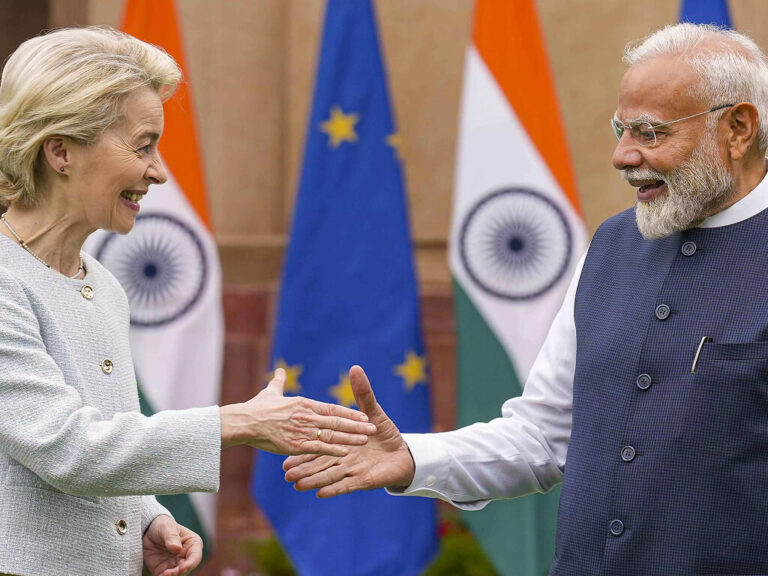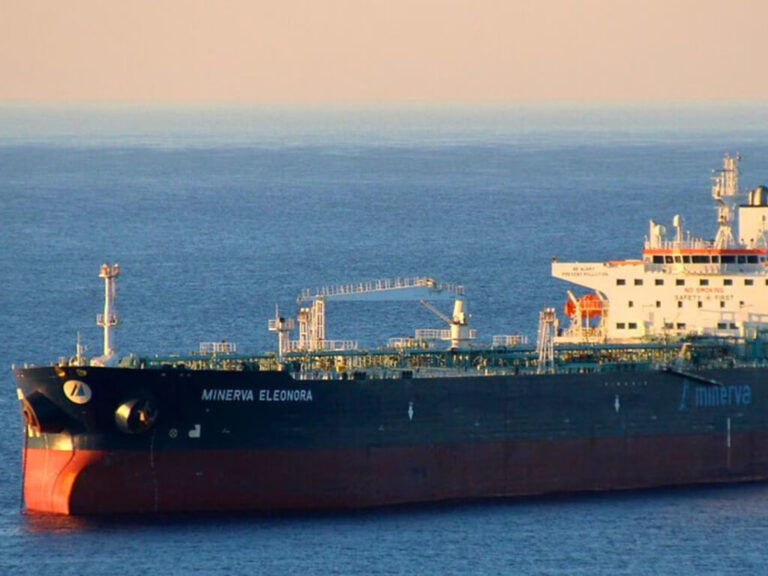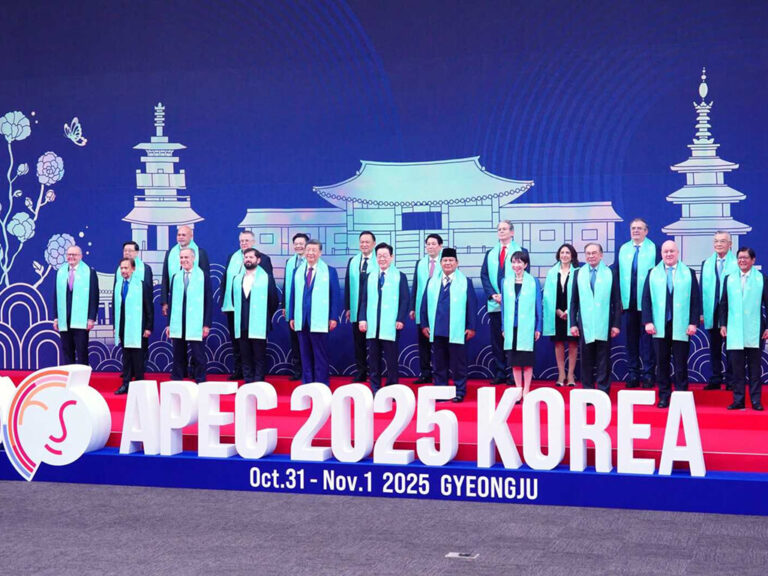For years, Syria remained outside the U.S.-led order in the Middle East, maintaining close ties with Russia and Iran under the authoritarian rule of President Bashar al-Assad. But the resurgence of political Islam has, somewhat unexpectedly, served to advance Washington’s interests.
Backed by Turkey’s Islamist government, Syria has formed a new Sunni Islamist administration more aligned with Western priorities. Leading the government is President Ahmed al-Sharaa, a former Islamist militant with alleged ties to al-Qaeda who was once banned from entering several Western nations. He now needs international legitimacy and rebuilding Syria’s foreign relations.
As part of that effort, Mr. al-Sharaa met with U.S. President Donald J. Trump this week during a high-profile visit to Riyadh, marking a significant diplomatic breakthrough. The meeting came just one day after Washington announced the full removal of sanctions on Syria—an unexpected boon for the new regime and a clear indication of a shift in U.S. policy toward Damascus.
Meeting in Saudi Arabia
U.S. President Donald J. Trump met with Syrian President Ahmed al-Sharaa in Riyadh during a brief but symbolic meeting. They were joined by Saudi Crown Prince Mohammed bin Salman for a 30-minute discussion held just before the Gulf Cooperation Council (GCC) summit.
This marked the first direct meeting between a U.S. and Syrian president in 25 years and was seen as a major step in bringing Syria back into the international fold after the fall of Bashar al-Assad’s regime in 2024. Both sides expressed optimism after the talks and signaled interest in continuing diplomatic engagement. Speaking to reporters on Air Force One, Trump praised Sharaa, calling him a strong and impressive leader with a tough background shaped by conflict.
Sharaa, in turn, welcomed the U.S. decision to lift sanctions on Syria. He described it as a historic and bold move that would ease the suffering of Syrians, support their recovery, and help bring stability to the region.
Later that night, in a televised address, Sharaa said the country was entering a new phase of rebuilding. He emphasized that the real work was just beginning and called on Syrians to help build a modern, stable nation.
A Great Relief for Syria
Syria still faces unresolved border disputes, with parts of its land occupied by Turkey and Israel. Minority groups—including Alawites, Druze, and Kurds—live in ongoing fear and uncertainty. The country’s economy is in ruins after 14 years of civil war. According to the United Nations, over 90% of Syrians now live in poverty. Much of the infrastructure has been destroyed, and basic services like electricity and internet remain unreliable or entirely unavailable.
In this difficult context, the recent meeting between U.S. President Donald Trump and Syrian President Ahmed al-Sharaa has offered a rare moment of hope. The U.S. decision to lift sanctions added further relief and raised the prospects for change.
Since taking office, al-Sharaa has focused on rebuilding ties with the West. His efforts gained momentum with the high-profile meeting in Riyadh, which many believe could open the door for European countries to follow suit. For observers and diplomats alike, the talks signaled a possible end to Syria’s 15 years of international isolation.
Inside Syria, many now hope that renewed relations with the West will bring foreign investment, help restore key sectors, and revive the country’s once-thriving tourism sector.
The Trump–Sharaa meeting sparked celebrations in Damascus. Car horns echoed through the streets as residents waved Syrian flags—cautiously hopeful that a more stable and prosperous future may finally be within reach.
Trump offer a fresh start
President Donald Trump pursued broader strategic objectives during his engagement with Syrian President Ahmed al-Sharaa. While many viewed the meeting as an attempt to purify Syria’s new Islamist-led government—still burdened by a controversial legacy—Trump appeared intent on bringing Syria into his broader Middle East coalition. To critics, Trump responded by framing his efforts as offering Syria a fresh start.
Trump stated that Sharaa had agreed, in principle, to join the Abraham Accords—an agreement that would normalize Syria’s relations with Israel.
The United Arab Emirates, Bahrain, and Morocco signed the U.S.-brokered accords in 2020, marking one of the major foreign policy achievements of Trump’s first term. Syria’s inclusion would represent a significant shift in its regional posture and could open the door to peace with Israel. It would also help improve Syria’s international image and help internal reconciliation with groups like the Kurds and Druze. Such a move could rehabilitate Sharaa’s standing on the global stage and shift focus away from his militant past.
If that happens, Trump may extend further support to Syria. He has already announced the lifting of U.S. sanctions, describing them as crippling and saying the decision would give Syria a chance to reset and explore new opportunities. According to a White House spokesperson, Trump also urged Sharaa to deport Palestinian militants, support U.S. efforts against the Islamic State, and address Syria’s remaining stockpiles of chemical weapons.
Sources familiar with the talks said the Syrian delegation presented several proposals to Trump. These included offers of access to Syrian oil, security guarantees for Israel, and even a plan to construct a Trump Tower in Damascus—an idea likely to appeal to Trump’s business instincts.
What happens next?
The U.S. State Department has presented the Syrian government with a 12-point list of conditions for the permanent lifting of sanctions. Key among them are firm guarantees for the protection of minority communities and Washington’s continued right to conduct targeted strikes against groups it designates as terrorists within Syrian territory. Syria is widely expected to accept these terms, especially as U.S. involvement may also deepen Saudi engagement—drawing Syria further into the Western sphere of influence.
However, Syria’s potential entry into the Abraham Accords remains uncertain. The country’s longstanding hostility toward Israel poses a serious obstacle, and any move toward normalization could provoke domestic backlash. And Israeli officials have been explicit: they will not tolerate the deployment of Syrian government forces near their southern border.
So, Trump’s outreach to Syria is far from a symbolic gesture—it is a calculated offer with clear conditions. The future of Sharaa’s government may now depend on how far he is willing—or compelled—to go to meet those expectations.








